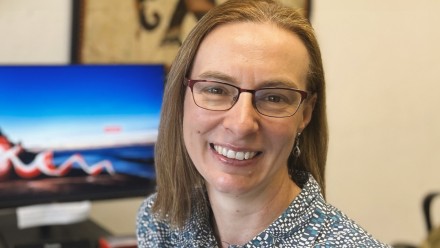Having impact outside your comfort zone
Robyn Lucas describes her involvement in helping to establish an international assessment of vitamin D status
1. What’s your key take-home message for effective involvement in collaborative international standard setting?
Be prepared to generously and honestly contribute your unique expertise, critical enquiry, and time. Be prepared to travel to meetings, attend teleconferences in the middle of the night – contribute. Achieving impact takes persistence, time, recognizing opportunities, and having “all the ducks lined up” and key players on board.
2. Tell us a little bit about what was involved in the international standardisation of the assessment of vitamin D status
International quality assurance programs had highlighted the poor quality of many vitamin D assays, at a time when healthcare spending on vitamin D testing had skyrocketed. Led by the US National Institute of Health, and seizing a time when several countries were about to undertake national health surveys including vitamin D testing, an international cross-disciplinary group was assembled to develop and implement standardised measurement of vitamin D. To find out more see Clinical, research annd public health implications of poor measurement of Vitamin D status and Vitamin D Standardization Program (VDSP).
3. What have you learnt―that others could benefit from―about effective involvement in collaborative international standard setting
Be open to serendipity: The opportunity to engage in the international standard setting collaboration initially arose from chance attendance at a meeting hosted by the Australian Bureau of Statistics (ABS) to outline their plans for the Australian National Health Survey 2011. My advocacy for including measurement of vitamin D led to the invitation to join an international standard setting group.
Seize the moment: There was a convergence of factors that made this an opportune time to seek to have impact, including:
- results from my research group demonstrating the poor quality of vitamin D assays
- a huge surge in interest on the health benefits of vitamin D and an exponential increase in vitamin D testing and the costs to Australia and the US.
- several countries – Australia, Ireland, Canada, Mexico – were about to undertake national health surveys, including testing the vitamin D status of their populations and there was interest in standardised measurement
Be prepared to stretch your thinking and work outside your comfort zone: I didn’t really understand what I was getting myself into, which meant I also had to be comfortable with a steep learning curve. At the initial stage the group largely consisted of biochemists, who spoke a different language. I had to actively and constantly ask questions to understand their expertise. It also turned out that while they understood the mechanics of developing a standardised assay, they didn’t appreciate the challenges of implementing the assay, of getting people on board. We all learnt a lot in the process.
Appreciate the value of a good chair: There was a lot of humour in our meetings – excellent chairmanship with a flavour of humility and fun, but very organized and well-prepared.
Welcome the honest, generous collaboration of your colleagues: I was the only person in the group with expertise in public health, medicine and epidemiology. I therefore provided a unique and welcomed perspective.
Engage wholeheartedly: I made a considerable effort to attend meetings in person (mostly unfunded), and to join 2-3 hour international teleconferences (usually starting at 2 or 3am for Australia).
Educate stakeholders: Once the standardised assay was established, I gave many presentations and published in relevant outlets – to general practitioners, researchers, government, community – to get the message across about the impacts of poor vitamin D measurement.
Maintain the network links: I have strived to maintain my links to the group – after several years of regular meetings, shared papers, eating together and arguing together, there is a willingness and openness to maintain discussions, share data, seek and provide opinions, even after the funding supporting the host group has gone.















